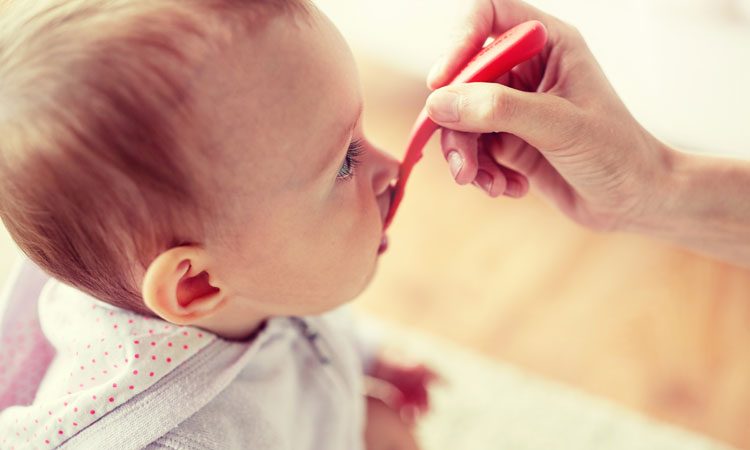New studies find baby foods are high in sugar
- Like
- Digg
- Del
- Tumblr
- VKontakte
- Buffer
- Love This
- Odnoklassniki
- Meneame
- Blogger
- Amazon
- Yahoo Mail
- Gmail
- AOL
- Newsvine
- HackerNews
- Evernote
- MySpace
- Mail.ru
- Viadeo
- Line
- Comments
- Yummly
- SMS
- Viber
- Telegram
- Subscribe
- Skype
- Facebook Messenger
- Kakao
- LiveJournal
- Yammer
- Edgar
- Fintel
- Mix
- Instapaper
- Copy Link
Posted: 19 July 2019 | | No comments yet
New studies have discovered that many baby food products provided over 30 percent of the calories from total sugars.


Two new studies from the World Health Organisation Regional Office For Europe (WHO/Europe) show that a high proportion of baby foods are incorrectly marketed as suitable for infants under six months and that many of those foods contain inappropriately high levels of sugar.
The World Health Organisation’s (WHO) long-standing recommendation states that children should be breastfed, exclusively, for the first six months. Its 2016 global Guidance on Ending the Inappropriate Promotion of Foods for Infants and Young Children explicitly states that commercial complementary foods should not be advertised for infants under six months.
“Good nutrition in infancy and early childhood remains key to ensuring optimal child growth and development, and to better health outcomes later in life – including the prevention of overweight, obesit and diet-related noncommunicable diseases (NCDs),” said Dr Zsuzsanna Jakab, WHO Regional Director for Europe.


WHO/Europe developed a methodology for identifying commercial baby foods available in retail settings.
WHO developed a draft Nutrient Profile Model (NPM) for children aged 6–36 months to guide decisions about which foods are inappropriate for promotion for this age group. This was put forward to Member States and stakeholders for consideration and further discussion. WHO/Europe also developed a methodology for identifying commercial baby foods available in retail settings, and for collecting nutritional content data on labels as well as other information from packaging, labelling and promotion (including claims).
This methodology was used to collect data on 7955 food or drink products marketed for infants and young children from 516 stores in four cites in the WHO European Region (Vienna, Austria; Sofia, Bulgaria; Budapest, Hungary; and Haifa, Israel).
In all four cities, a substantial proportion of the products were marketed as being suitable for infants under the age of six months.
“Foods for infants and young children are expected to comply with various established nutrition and compositional recommendations,” added Dr João Breda, Head of the WHO European Office for the Prevention and Control of Noncommunicable Diseases.
“Nonetheless, there are concerns that many products may still be too high in sugars.”
In three of the cities, half or more of the products provided over 30 percent of the calories from total sugars. Around a third of the products listed sugar, concentrated fruit juice or other sweetening agents as an ingredient.
These added flavours and sugars could affect the development of children’s taste preferences by increasing their liking for sweeter foods.
Related topics
Flavours & colours, Health & Nutrition, Ingredients, Obesity, Packaging & Labelling, Regulation & Legislation, Research & development, The consumer








